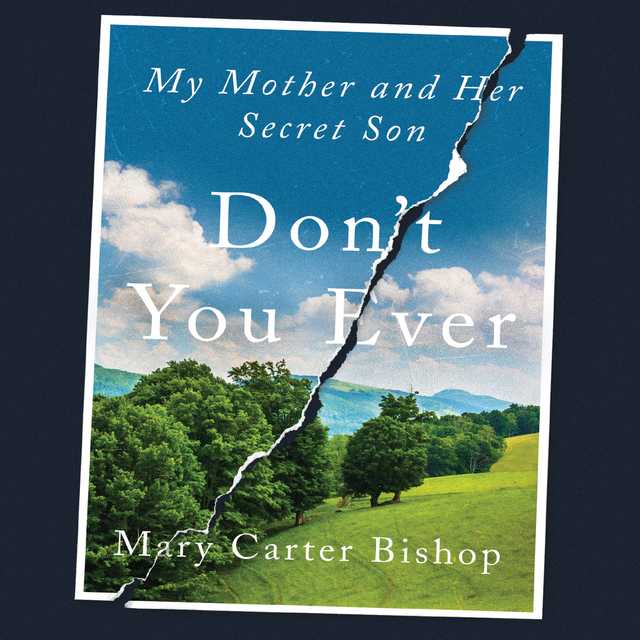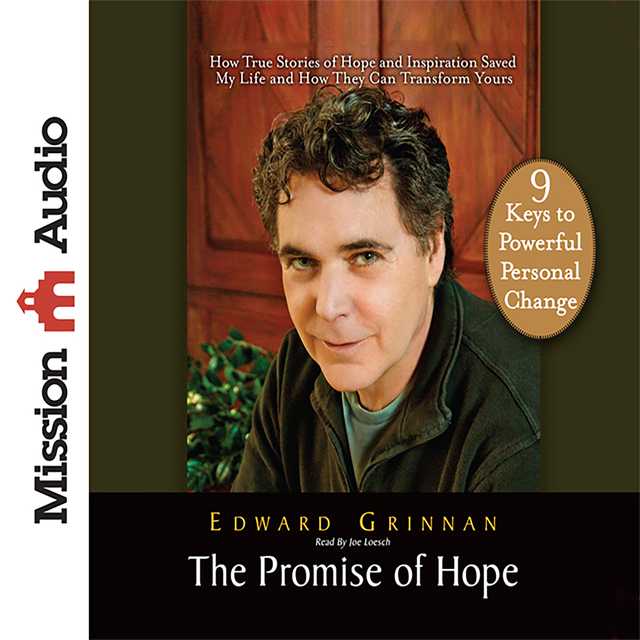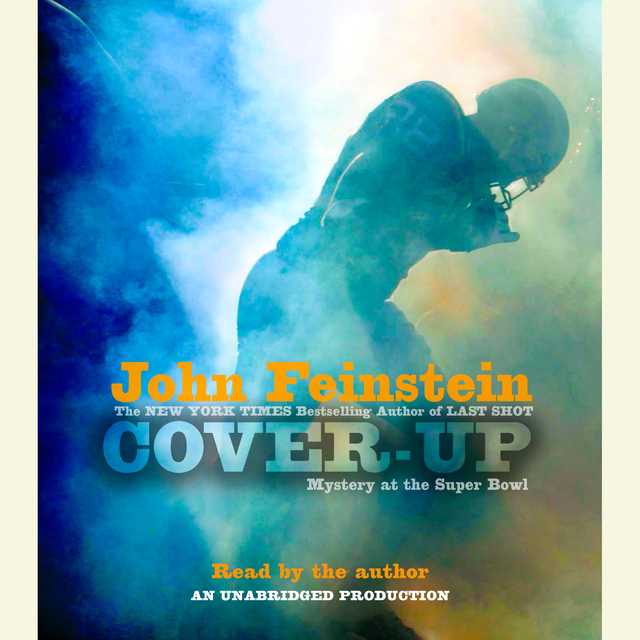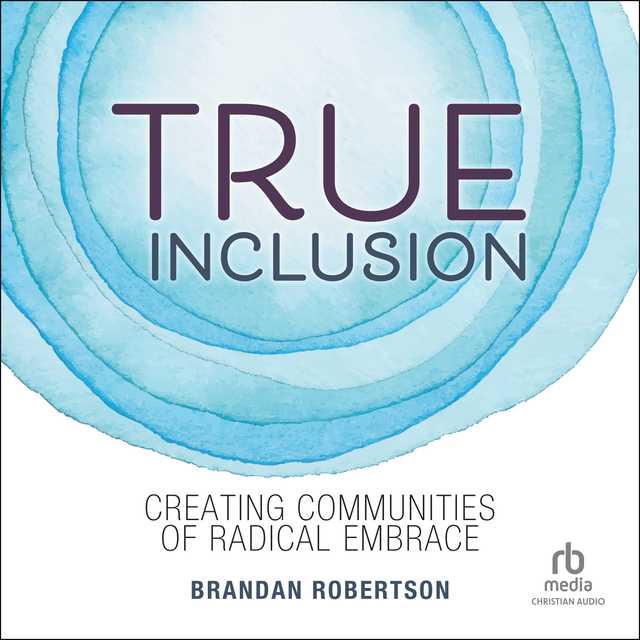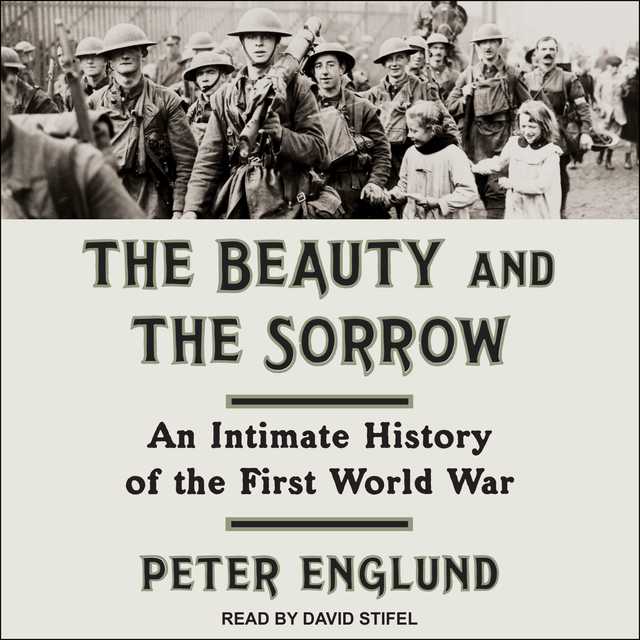Don’t You Ever Audiobook Summary
From a prizewinning journalist, Mary Carter Bishop, a moving and beautifully rendered memoir about the half-brother she didn’t know existed that hauntingly explores family, class, secrets, and fate.
Applying for a passport as an adult, Mary Carter Bishop made a shocking discovery. She had a secret half-brother. Her mother, a farm manager’s wife on a country estate, told Mary Carter the abandoned boy was a youthful “mistake” from an encounter with a married man. There’d been a home for unwed mothers; foster parents; an orphanage.
Nine years later, Mary Carter tracked Ronnie down at the barbershop where he worked, and found a near-broken man–someone kind, and happy to meet her, but someone also deeply and irreversibly damaged by a life of neglect and abuse at the hands of an uncaring system. He was also disfigured because of a rare medical condition that would eventually kill him, three years after their reunion. During that window, Mary Carter grew close to Ronnie, and as she learned more about him she became consumed by his story. How had Ronnie’s life gone so wrong when hers had gone so well? How could she reconcile the doting, generous mother she knew with a woman who could not bring herself to acknowledge her own son?
Digging deep into her family’s lives for understanding, Mary Carter unfolds a sweeping story of religious intolerance, poverty, fear, ambition, class, and social expectations. Don’t You Ever is a modern Dickensian tale about a child seemingly cursed from birth; a woman shattered by guilt; a husband plagued by self-doubt; a prodigal daughter whose innocence was cruelly snatched away–all living in genteel central Virginia, a world defined by extremes of rural poverty and fabulous wealth.
A riveting memoir about a family haunted by a shameful secret, Don’t You Ever is a powerful story of a woman’s search for her long-hidden sibling, and the factors that profoundly impact our individual destinies.
Other Top Audiobooks
Don’t You Ever Audiobook Narrator
Janet Metzger is the narrator of Don’t You Ever audiobook that was written by Mary Carter Bishop
A graduate of Columbia Journalism School, Mary Carter Bishop was on the Philadelphia Inquirer team that won a Pulitzer Prize for its coverage of nuclear leaks at Three Mile Island. Her Roanoke Times & World-News series on poisonings and fraud by exterminators and other pesticide users won a George Polk Award and was a Pulitzer finalist.
About the Author(s) of Don’t You Ever
Mary Carter Bishop is the author of Don’t You Ever
More From the Same
- Publisher : HarperAudio
- Abraham
- American Gods [TV Tie-In]
- Dead Ringer
- House of Sand and Fog
- Prey
Don’t You Ever Full Details
| Narrator | Janet Metzger |
| Length | 7 hours 11 minutes |
| Author | Mary Carter Bishop |
| Category | |
| Publisher | HarperAudio |
| Release date | July 03, 2018 |
| ISBN | 9780062564399 |
Subjects
The publisher of the Don’t You Ever is HarperAudio. includes the following subjects: The BISAC Subject Code is Abuse, Child Abuse, Family & Relationships
Additional info
The publisher of the Don’t You Ever is HarperAudio. The imprint is HarperAudio. It is supplied by HarperAudio. The ISBN-13 is 9780062564399.
Global Availability
This book is only available in the United States.
Goodreads Reviews
LauraBeth
September 04, 2018
I don't think I've loved a memoir this much since I read All Over But The Shoutin' by Rick Bragg 25 years ago. I'm not sure anything I write here can do it justice. Bishop's story of her family's secretive past in rural Virginia caught me completely off guard as I wasn't expecting such a well-written story. The narrative that Bishop crafted for her family rings authentic as she doesn't solely rely on her memories or memories of others - but she also deployed her investigative journalism reporting - to accurately capture the whole story. The voices she gives to her family come from a well-researched place and you really sense that she took great care in putting together the puzzle pieces of her family's past history. While Bishop weaves together the story of her mother Adria and her secret son Ronnie - in the background another multi-layered story unfolds - one of class struggle, social status, poverty, religion and southern mores. One of the more fascinating things that I found in this book was that it truly made me think abut nature vs. nurture. How does love (or lack of it) help to shape and form our identities? On the road to us becoming our adult selves, how much of our childhood influences that journey? How do we live with the consequences of our choices and the choices forced upon us by others? While reading Ronnie's story, you can easily imagine his alternative history had his mother allowed him to be adopted to the family who wanted him. And you can also see an alternative history for Bishiop's mother as well. Bishop is a gifted storyteller who writes with such heart that you just want to root for Ronnie and his underdog status. She clearly inherited a tender heart from her parents and it shows in her writing with the way she captures places and people. She has the ability to put you in the middle of a rural Virginia farm - walking among the orchards, appreciating the mountains and romping through the back-acres. And the way she is able to peel back the darkness and shine a bright light, not just on her family's secrets, but on their hearts - shows Bishop's compassion. This is probably one of the most genuine and least self-serving memoirs I've ever read. For if all Ronnie wanted in his life was to be heard - Bishop gave her brother that gift by telling his story.
Cathy
September 29, 2021
The author is a reporter, and this book follows her case to uncover her mother's secret. The research process is engaging as are the psychological implications and the motivation for her mother's behavior. At times, I felt that the repetition of events to provide background or a different point of view slowed the storyline to become more of a report than a narrative but the details provided context that was key to the author's empathy and forgiveness. It is not an uplifting family story but it is honest and fascinating.
Khris
April 12, 2021
Another memoir focusing on a "lost" brother, but this one was completely different from The Splendid Things We Planned.Bishop remembers this older kid kind of hanging around the house and drifting in and out of their lives. She always thought he was a distant cousin, but as an adult, she stumbles on the knowledge that he was in fact her half brother, an "illegitimate" child her mother had as a teenager, long before she met and married the author's father. It's a heartbreaking story for her mother but mostly for her brother. He had a completely different life from that of his sister. She was doted on and showered with love and affection, and protection. He was hidden away, mistreated, neglected, and left to fend for himself. The author tries to come to terms with how her mother could be two completely different people -- different mothers. She seeks out her brother as an adult and forges a relationship of sorts with him. He doesn't make it easy. He's angry and embittered -- rightly so -- but that's only one small part of his many issues.
Lee
July 05, 2018
A family broken apart in life, reunited in this wonderful book.
Lottie
June 06, 2022
This was difficult to read, just heartbreaking really. The toll that shame took on the life of Ronnie Overstreet. At times it seems the decisions that were made in his early life were designed especially for him to bear witness to the pain of his illegitimacy. Every road that could’ve led to a more positive outcome was swiftly and systemically bricked off by his own mother. It led to a number of ways in which he acted out, rebelled and cried for attention, and of course he was held responsible and to blame for those acts as well, and severely punished. Ostracized. Abandoned over and over again. All the while seeing his younger, “legitimate” sister reap all the benefits and all the love and affection and attention and creature comforts, right in his face. The hand that fate dealt him was further twisted by a slow creeping, debilitating illness which ultimately took his life in the end. This is a very well written and well researched memoir. I appreciated the unfolding of the sequences of events and the authors ability to pull in relevant facts around social structure and social issues which helped to paint a fuller picture of this family. This memoir is written by the sister that I referred to above and could be her way of trying to understand what happened in the family. I didn’t come to terms with what happened and I don’t think she ever came to terms with what happened either and these apparent dualities within her mother. Maybe the author wanted to memorialize and legitimize and show that her brother’s life did in fact have value.
Carol
May 09, 2018
This must have been so painful for the author to write. She was raised by her parents in Keswick, Virginia, a very scenic area that had long attracted rich people for its beauty. The rich had a hunt club and still hunt foxes with hounds. Seems like that they are imitating the English. There was little to none middle class. It used to be that slaves carried out the roles of taking care of the rich. But after there was no more slavery, the poor whites took their jobs. Mary Carter Bishop's mother worked as a nurse to the children of the rich and her husband had a variety of jobs. taking care of the horses, gardens and being a general jack of all trades.Mary lived a happy and contented life. They were poor but she was pampered by her parents. Later on, when she applied for a passport, she was shocked to find out that she had a half brother. When she asked about him, neither parent gave her much information. One time, her mother said that she had made a terrible mistake in her life that she could never forgive herself for. Mary did find out what happened before her parents died and tried to form a sister-brother relationship with him but waited until after, her parents passed, to interview friends and relatives, and read old newspapers before she put together this truly painful story. I encourage everyone to read and learn from this story. Many of the horrible things that happened to her half brother was the fault of the society at the time and place. I learned so much from this book. The mother suffered from guilt but her son suffered tremendously. I received an advanced reading copy of this book from the Publisher as a win from FirstReads but that in no way made a difference in my thoughts or feelings in this review.
Tricia
January 05, 2019
Wow! An honest, raw personal story that broke my heart over and over for Adria, Ronnie and Mary Carter. To think "what could have been" if society had been more accepting and supporting of an unwed mother or if Ronnie had been adopted by the family that wanted and loved him. Making it more personal for me, as a later generation of the Hicks family mentioned in the book, I knew of some events and people mentioned in the book.
Jill
May 03, 2019
This is a well written memoir about a very painful story within the author's family. Those of us of a certain age remember a girl who was sent "to live with her aunt/cousin/grandmother" for a period of time (to coincide with a pregnancy/birth). It was never spoke of again, much like the secret borne by the mother, Aidra. Secrets kept have a way of coming out no matter how hard we try.
Maggie
December 09, 2018
"Don't You Ever"...call me Mama. That's what Mary Carter Bishop's mother told her "secret" son, with whom she had intermittent contact when the boy was growing up. Passed off as a cousin to the writer, Ronnie had a hard, sad life, and his real status as Bishop's half-brother only came to light when Bishop applied for a passport when she got older. She had known him only as an odd boy "cousin" who drifted in and out of her childhood experience.Bishop employs her journalistic skills to trace down the facts in this sad family story. She was born in 1945; her parents were a legally married couple who spent their lives in service to wealthy Virginia families. Ronnie, her half-brother, had been born to mom Adria some seven years prior to Bishop, who was never able to determine the identity of Ronnie's father. (She narrowed it down to a few possibilities, but could not be certain, and abandoned the effort.)It's not clear, but from the facts she cites, I'm fairly certain that Adria's pregnancy was the result of a coerced act of intercourse. To me, that means rape, but from the context, it could well have been an older man who flattered a pretty young girl, a careless seduction. It certainly wasn't an affair; it was an encounter, and then the man left. When Adria became pregnant (probably in 1938 or so), it was a big deal, an embarrassment which got Adria sent to a Crittendon facility, the go-to place for single pregnant girls.The ensuing events are weird and inexplicable, even to Bishop. Adria brought Ronnie home at first. Then he was fostered out to a couple who came to love him and wanted to adopt him, but Adria would not relinquish custody of him: she blocked the adoption. Bishop doesn't know why. Her mother showed little affection for the boy; Bishop wonders whether her mother envisioned somehow bringing Ronnie back home after she married and "adopting" him with her husband. But she never acted on that, and eventually the couple who wanted to adopt him abandoned their efforts, not wanting to risk heartbreak if suddenly Adria changed her mind yet again.This, clearly, was the ultimate disaster for Ronnie. For much of his youth, he was confined to a sort of work camp facility for juveniles, where he experienced harsh conditions and harsher treatment. Eventually he learned to be a barber, and for the rest of his life, he had a barber shop in a small town not far away. He lived simply and in solitude. By the time Bishop discovered his existence, he had become an idiosyncratic man, competent but quirky and erratic. He also had developed acromegaly, a hormonal disorder that often presents in adulthood due to a usually benign tumor growing on the pituitary gland. The gland produces excess amounts of a growth hormone. Often it is treatable, but in Ronnie's case, he sought no treatment and was offered none. The non-stop growth of bones and cartilage caused all sorts of problems and deformed his face and body, eventually leading to his early death. Bishop tried to convince her half-brother to seek medical treatment, but he refused. Poignantly, she discovers among his belongings all of his driver's licenses throughout the years, which graphically showed the onset and development of the disease, and she knows that if he'd had a different life - a life with family, a life with witnesses - he might have been spared a lot of suffering.Much of the book involves, of course, Bishop's attempts to figure out her mother's decision and the contours of her mother's inner life, as well as the participation of her own father in the fictionalized, incomplete story of their family. There is quite a bit of background on the Virginia locale, the history of its settlement from colonial times, and we get a good glimpse of the corrosive effect of lies and the willful refusal to confront historical realities.
John
July 30, 2019
What a gripping story! I couldn't put it down. It's every bit as good as people had told me -- not only because of the touching human drama but also what it told of a part of my home state I knew little about.
Tom
July 05, 2018
I'm not sure I'd be brave enough to pull off this memoir if I were Mary Carter Bishop. Her childhood was both idyllic and fraught, and she deftly reveals what it's like to learn that your mother did something as a young woman that would hang over the family for years. And getting to know her long-lost brother Ronnie in his later years is a treat. This book seems like it was a long time coming, but it was definitely worth the wait.This book was an advanced reading copy sent to me by the publisher.
Lu
August 04, 2018
Mary Carter Bishop is an excellent writer but even more, she is a superb story-teller. This story will appeal to anyone who has ever questioned the randomness of life or the quirks of fate. "Don't You Ever" is the story of a woman who was unaware that her cousin was really her half-brother. She discovered the truth when she needed to obtain a copy of her birth certificate and learned her mother had another living child and that child was her cousin. She tracked him down and incorporated him into her life, doing her best to help him overcome a serious illness. Like the award-winning journalist she is, Mary Carter Bishop worked to dig deep into the lives and psyches of her beloved family members. She needed to understand how her mother could virtually abandon her first-born child and she needed to cope with the impact her mother's choices had on the life of her brother, Ronnie "Slim" Overstreet. Why was she the child to receive every advantage and the full force of their mother's love? Why was fate kind to Mary Carter Bishop but not her brother? I was attracted to this story as my husband, Tony, learned in Jan 2018 that he has a half-sister, Mary. Their father was a beloved physician in a very small WV community. Mary's mother (married to another man) was his nurse and worked for him until she passed of ovarian cancer. Mary was just 12 and had a very rough time after her mother died. She turned into a rebellious teen, dropped out of school and ran away. Tony, like Mary Carter Bishop, had every advantage. Mary, like Ronnie Overstreet, pulled her life together. She earned a GED, enlisted in the Air Force, put herself through nursing school and eventually earned a master's degree in nursing. We have a thousand questions about who knew the truth of Mary’s parentage. Their co-workers in the medical office did not know. Mary’s mother’s best friend did not know. We are not even sure their father knew Mary was his daughter. How did Mary’s mother keep such a big secret in a such a small town? We will never have answers. One reviewer wrote: “found it hard to believe that the author did not realize the truth until she was an adult.” After our experience, there is no question even adults are unable to “realize the truth”!Disclosure: I am acquainted with the author having once worked with her husband. The events of this book happened long before I met them, I never knew this story, and we haven’t been in touch for at least a dozen years. I am, however, the reason why Mary’s mother, Adria, owned a cat in the last years of her life. I once received a very lovely note from Adria telling me how much she loved her cat. Ironically, I had called the cat “Momma” but Adria changed her name to “Baby”.
Anne
April 27, 2019
This book affected me in ways I didn't expect. I still do not know what I really think about the mother--other than she was a very selfish woman who wanted the best for herself at the expense of a son who was born out of wedlock (which was frowned upon during the 40s). At the beginning, I think that she really loved him as she stayed in his life for the first three years of his life (even though she did not admit that he was her son). She saw that he was being brought up in a good foster home where the people truly loved him but had to give him up because she would not give him up for adoption but rather let him stay in a "temporary" situation because it did not suit her to take him back.The sister finds out she has a brother by accident when she goes to get her birth certificate for a passport and discovers 1 more living child (outside of her) and asks her mother. Her mother admits that Ronnie Overstreet is not her cousin but her half-brother. Mary wants to know more but her mother is short of answers. As a reporter, she decides to look into what happened to her mother and her brother and how he is doingShe was able to reconnect with her brother but only had three short years to spend with him because he died of a medical condition. I see that Mary was trying hard to reconcile her mother that she loved dearly--who doted on her--with this other woman who abandoned her son and would not let him admit she was his mother.Even though he had a rough upbringing, he managed to become a successful barber whose clients loved him and who felt that he had made a difference in their lives. Unfortunately, he never believed in himself because of what had happened to him.I am still angry at the mother that she would not give him up to loving parents but wouldn't take him back into her family openly--even after saying she would do so after getting married.I also am very proud of Mary that she took it upon herself to reconnect with her brother and have a relationship with him (on his terms). I would recommend this book to anyone who likes memoirs.
Anna
April 10, 2021
This story is well-written, but heartbreaking. I kept thinking, "It's such a shame...". It's a shame that Ronnie and Mary's mother felt so unworthy and guilt-ridden because she became a teenage mother. It's a shame that the couple who wanted to adopt Ronnie wasn't allowed to do so. It's a shame Mary didn't get to know her brother (or that she even had one) until they were both adults. It's a shame Ronnie was neglected and so lonely and angry. I could go on.But most of all my heart hurts to think that, from what I can tell, no one in this story had the eternal hope that Jesus brings to broken situations and broken people. This world is a hard place, and it can feel so empty to navigate the battles that this family and so many others face without the knowledge that THIS isn't all there is.
Melendy
August 10, 2018
The research put into this book was extensive. Mary Bishop Carter thoroughly dug through painful family history to create this book and discover as much as she could about her hidden brother. Mary Bishop Carter eloquently paints a picture of what the South looked like for those who worked for the rich. The disgusting conservative “values” are illustrated by her mother’s struggle as an unwed mother before Mary’s birth.This story makes you upset at so many times with the mother’s choices to abandon her son, yet one can empathize with it given the dire circumstances. Mary’s attempt to reconcile her mother’s grievances with her brother shows in a way that is unpredictable. This story made me cry, as it seemed so important. Ronnie’s story is finally able to be told through the lens of his sister who loved him fiercely.
Frequently asked questions
Listening to audiobooks not only easy, it is also very convenient. You can listen to audiobooks on almost every device. From your laptop to your smart phone or even a smart speaker like Apple HomePod or even Alexa. Here’s how you can get started listening to audiobooks.
- 1. Download your favorite audiobook app such as Speechify.
- 2. Sign up for an account.
- 3. Browse the library for the best audiobooks and select the first one for free
- 4. Download the audiobook file to your device
- 5. Open the Speechify audiobook app and select the audiobook you want to listen to.
- 6. Adjust the playback speed and other settings to your preference.
- 7. Press play and enjoy!
While you can listen to the bestsellers on almost any device, and preferences may vary, generally smart phones are offer the most convenience factor. You could be working out, grocery shopping, or even watching your dog in the dog park on a Saturday morning.
However, most audiobook apps work across multiple devices so you can pick up that riveting new Stephen King book you started at the dog park, back on your laptop when you get back home.
Speechify is one of the best apps for audiobooks. The pricing structure is the most competitive in the market and the app is easy to use. It features the best sellers and award winning authors. Listen to your favorite books or discover new ones and listen to real voice actors read to you. Getting started is easy, the first book is free.
Research showcasing the brain health benefits of reading on a regular basis is wide-ranging and undeniable. However, research comparing the benefits of reading vs listening is much more sparse. According to professor of psychology and author Dr. Kristen Willeumier, though, there is good reason to believe that the reading experience provided by audiobooks offers many of the same brain benefits as reading a physical book.
Audiobooks are recordings of books that are read aloud by a professional voice actor. The recordings are typically available for purchase and download in digital formats such as MP3, WMA, or AAC. They can also be streamed from online services like Speechify, Audible, AppleBooks, or Spotify.
You simply download the app onto your smart phone, create your account, and in Speechify, you can choose your first book, from our vast library of best-sellers and classics, to read for free.
Audiobooks, like real books can add up over time. Here’s where you can listen to audiobooks for free. Speechify let’s you read your first best seller for free. Apart from that, we have a vast selection of free audiobooks that you can enjoy. Get the same rich experience no matter if the book was free or not.
It depends. Yes, there are free audiobooks and paid audiobooks. Speechify offers a blend of both!
It varies. The easiest way depends on a few things. The app and service you use, which device, and platform. Speechify is the easiest way to listen to audiobooks. Downloading the app is quick. It is not a large app and does not eat up space on your iPhone or Android device.
Listening to audiobooks on your smart phone, with Speechify, is the easiest way to listen to audiobooks.

